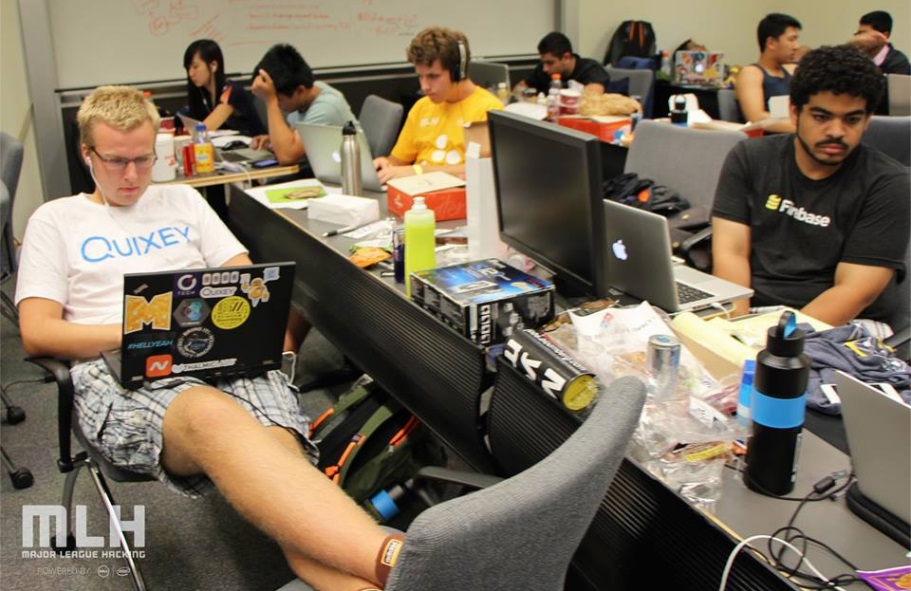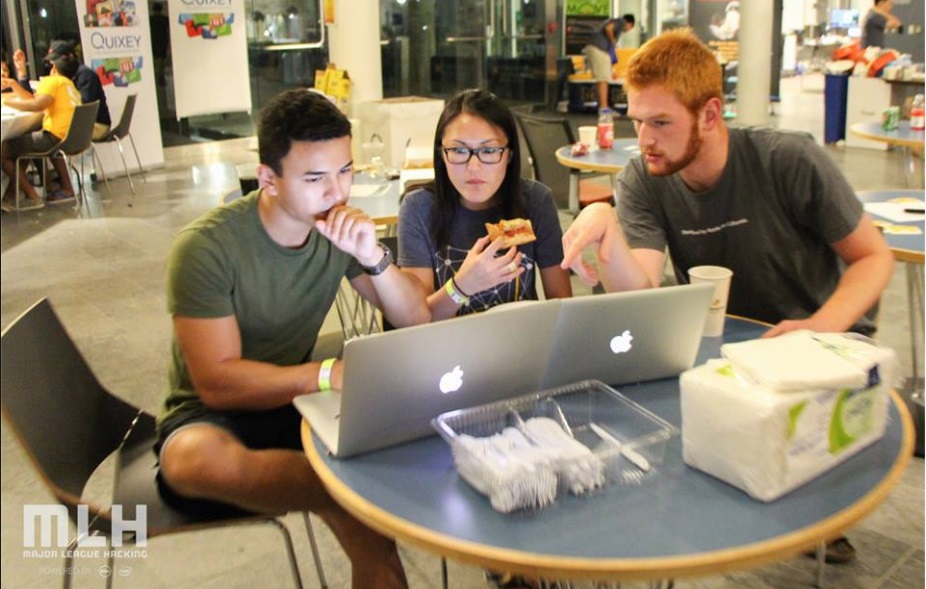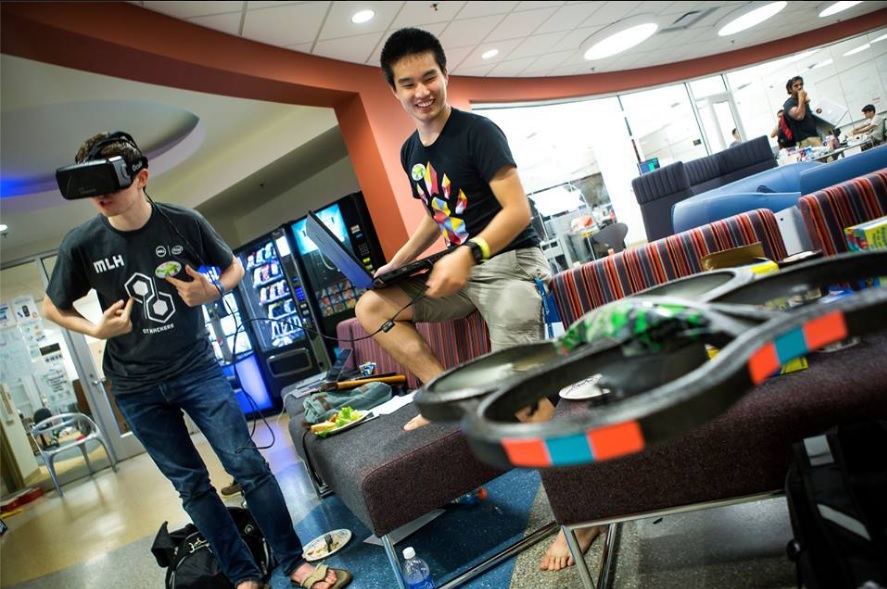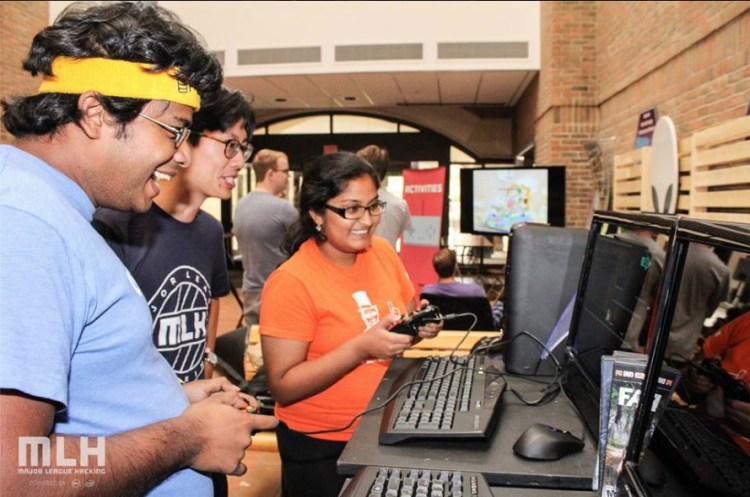Want smarter insights in your inbox? Sign up for our weekly newsletters to get only what matters to enterprise AI, data, and security leaders. Subscribe Now
In the past few years, I’ve sponsored, hosted, and participated in hackathons all around the United States – even one that spanned 2,000 miles on a bus. However, until this past weekend at MHacks in Ann Arbor, I had never been to a collegiate hackathon.
It’s a whole different ball game.
MHacks is a bi-annual 36-hour hackathon on the University of Michigan’s campus, attended by 1,200 students from various universities (and some high schools) in the U.S. and Canada.
From the moment I first spoke with Vikram Rajagopalan, the director of MHacks (and a sophomore at U of M), I knew this event had its head in the right place. So when he offered me a spot as a mentor at the event because of my experience at Assembly, I booked a flight immediately.
If a month ago you’d told me hackathons have jumped the shark, I probably wouldn’t have disagreed with you.
The culture of hackathons has become incredibly prize- and sponsor-driven, and over time that made me feel a bit less inspired by them. Time spent meeting people just for the sake of creating something together was replaced by “professional” hackathon attendees who built recycled versions of the same product every weekend just to add to their arsenal of API prizes while getting a weekend’s worth of free beer and food. And that’s just the start of it.
From inappropriate, childish humor to public fights about cheating for prize money, hackathons have started to look pretty pathetic. Almost as pathetic, in fact, as our industry has sometimes looked lately.

But I didn’t see these things at MHacks.
I saw teams forming from different schools to collaborate and learn together, I saw students put their own projects on the back burner to help someone work through a technical challenge, and I saw people building products to solve real problems in the world. I also saw a level of professionalism that sometimes seems missing here in SF. (If you’re not sure what I mean, see any article on Valleywag.)
Some people built clever hacks that overcame fun technical challenges, and others made products aimed at making the world a better place. Some of the submissions were fun, or silly. But few seemed to be contrived simply to make a corporate sponsor smile, and none (that I saw) were immature or offensive. Take a minute to skim through the 244 products that were built this weekend and you’ll see what I mean.
From the student organizers to the sponsors to the keynote speakers (like Alexis O’Hanian and John Maeda), everyone was there to create an awesome experience for the students. This meant making it an absolute priority to create a culture of acceptance and positivity – and they all did this.

Sure, MHacks had sponsors paying big bucks to be there and offer iPads and A.R. Drones and all sorts of other great prizes, but they weren’t the lifeblood of the event. The lifeblood was 1,200 young ladies and gentlemen who traveled long distances to stay awake for days on end making things together.
As Venmo engineer Cassidy Williams points out in this great piece, MHacks didn’t go off completely without the embarrassing, childish behavior that is so prevalent in the tech industry. This behavior sucks, and even at an event that seemed so pure from my perspective, I wasn’t shocked to learn afterwards that this had taken place.
I haven’t been to other collegiate hackathons, but I think the work that Major League Hacking (the official student hackathon league) is doing to support these young communities is really important and is helping define this culture of positivity. This is something the world of hackathons outside of college has long been missing.

I went to MHacks to support the student population – which I hope I did – but I came out of it with a renewed excitement about the upcoming generation of entrepreneurs.
Twilio’s Rob Spectre kicked off the closing ceremony with this comment to the students at MHacks: “I think I speak for all of the sponsors here today in saying that we really look forward to working for you 10 years from now.”
I’m sure he said it somewhat in jest, but he’s right.
Some of these young ladies and gentlemen will be running the show soon, and I think our industry will better for it.
In the meantime, maybe we could all just try to act their age.
Austin Smith is the platform evangelist at Assembly, a platform for building companies collaboratively and sharing success equitably. Previously, he was an early hire at Singly and before that a journalist.


